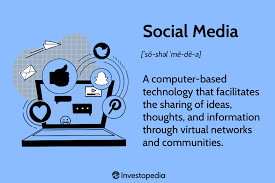Unlocking Success: Leveraging the Power of Industry Experts in Today’s Business World
The Value of Industry Experts in Today’s Business Landscape
In today’s fast-paced and competitive business environment, the role of industry experts has become more crucial than ever. Industry experts are professionals who possess in-depth knowledge, experience, and insights in a specific field or sector. Their expertise is highly sought after by businesses looking to gain a competitive edge, make informed decisions, and navigate complex industry challenges.
One of the key benefits of engaging industry experts is their ability to provide valuable guidance and strategic advice based on their years of experience and deep understanding of the industry. Their insights can help businesses identify opportunities, anticipate trends, and mitigate risks effectively.
Industry experts also play a significant role in driving innovation and thought leadership within their respective sectors. By staying abreast of the latest developments, technologies, and best practices, they can offer fresh perspectives and innovative solutions that can propel businesses forward.
Furthermore, industry experts often have established networks and connections within the industry, which can be invaluable for businesses seeking partnerships, collaborations, or new business opportunities. Their credibility and reputation can open doors to new possibilities and enhance a company’s visibility and reputation.
Businesses that leverage the expertise of industry professionals are better equipped to make informed decisions that align with their strategic goals and drive sustainable growth. Whether it’s navigating regulatory changes, developing new products or services, or expanding into new markets, industry experts can provide the necessary guidance and support to help businesses succeed.
In conclusion, industry experts are a valuable asset for businesses looking to thrive in today’s competitive landscape. Their knowledge, experience, and insights can make a significant difference in helping companies achieve their objectives, stay ahead of the competition, and adapt to evolving market dynamics. Collaborating with industry experts is not just a smart business move – it’s an investment in long-term success.
Understanding and Engaging with Industry Experts: A Guide to Identification, Examples, and Becoming One
- How do you identify industry experts?
- How to find industry experts?
- What is an example of industry expertise?
- What is an industry expert?
- How do I become an industry expert?
How do you identify industry experts?
Identifying industry experts is a critical process that involves thorough research and evaluation. One effective way to identify industry experts is by assessing their credentials, experience, and track record within the specific field or sector. Look for professionals who have a strong reputation, relevant qualifications, and a proven history of success in their industry. Additionally, consider factors such as their contributions to thought leadership, participation in industry events, publications in reputable journals, and endorsements from peers or clients. By conducting comprehensive due diligence and seeking recommendations from trusted sources, businesses can confidently identify industry experts who can provide valuable insights and guidance to support their objectives.
How to find industry experts?
When seeking industry experts, businesses can employ various strategies to identify and connect with professionals who possess the knowledge and experience they require. One effective method is to attend industry conferences, seminars, and networking events where experts often gather to share insights and expertise. Utilising online platforms such as professional networking sites, industry forums, and expert directories can also be valuable in discovering and engaging with industry experts. Additionally, reaching out to professional associations, academic institutions, and consulting firms can help in locating individuals with specialised expertise in a particular field. By leveraging these resources and actively engaging with the industry community, businesses can successfully find and collaborate with industry experts to enhance their strategic initiatives and drive business growth.
What is an example of industry expertise?
Industry expertise refers to a deep understanding and specialised knowledge within a specific sector or field. An example of industry expertise can be seen in the technology sector, where a cybersecurity expert possesses in-depth knowledge of cyber threats, vulnerabilities, and best practices for safeguarding digital systems and data. This expert would have years of experience in identifying and mitigating security risks, developing robust security protocols, and staying abreast of the latest trends and technologies in cybersecurity. Their expertise allows them to provide valuable insights, strategic guidance, and innovative solutions to help businesses protect their digital assets effectively in an increasingly complex and interconnected digital landscape.
What is an industry expert?
An industry expert is a highly knowledgeable professional who possesses extensive experience, expertise, and insights within a specific field or sector. Industry experts are sought after for their deep understanding of industry trends, best practices, challenges, and opportunities. They play a crucial role in providing strategic guidance, innovative solutions, and thought leadership to businesses looking to excel in their respective industries. Industry experts are valued for their ability to offer valuable advice, make informed decisions, and drive growth and success within their field of expertise.
How do I become an industry expert?
Becoming an industry expert requires dedication, continuous learning, and a strategic approach to building your expertise. Start by gaining a deep understanding of your chosen field through formal education, practical experience, and staying updated on industry trends. Engage with industry leaders, attend conferences, and participate in networking events to expand your knowledge and build valuable connections. Sharing your insights through writing articles, speaking at events, or creating online content can help establish your credibility and visibility within the industry. Consistency, passion for learning, and a commitment to excellence are key factors in becoming a respected industry expert over time.





